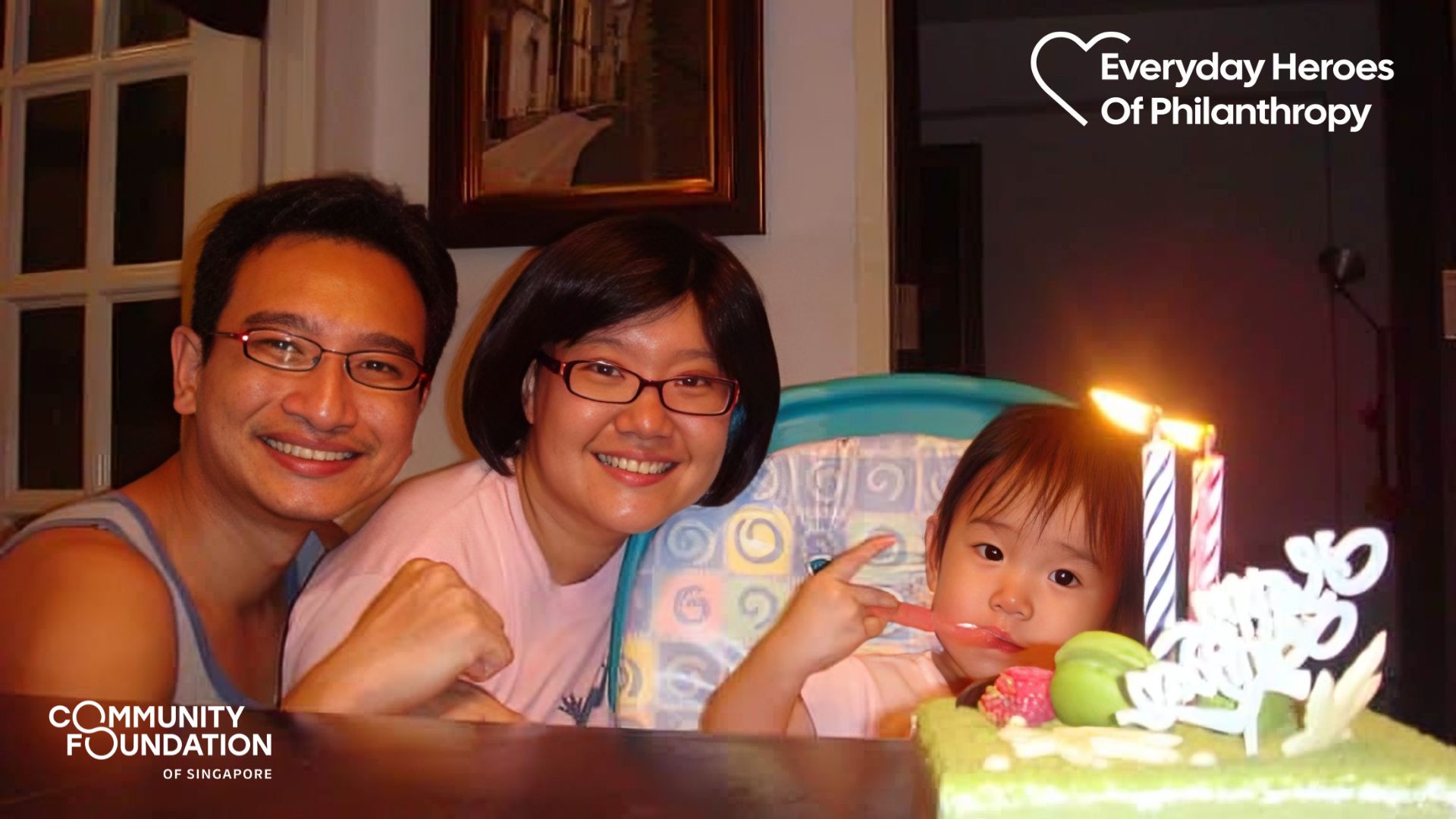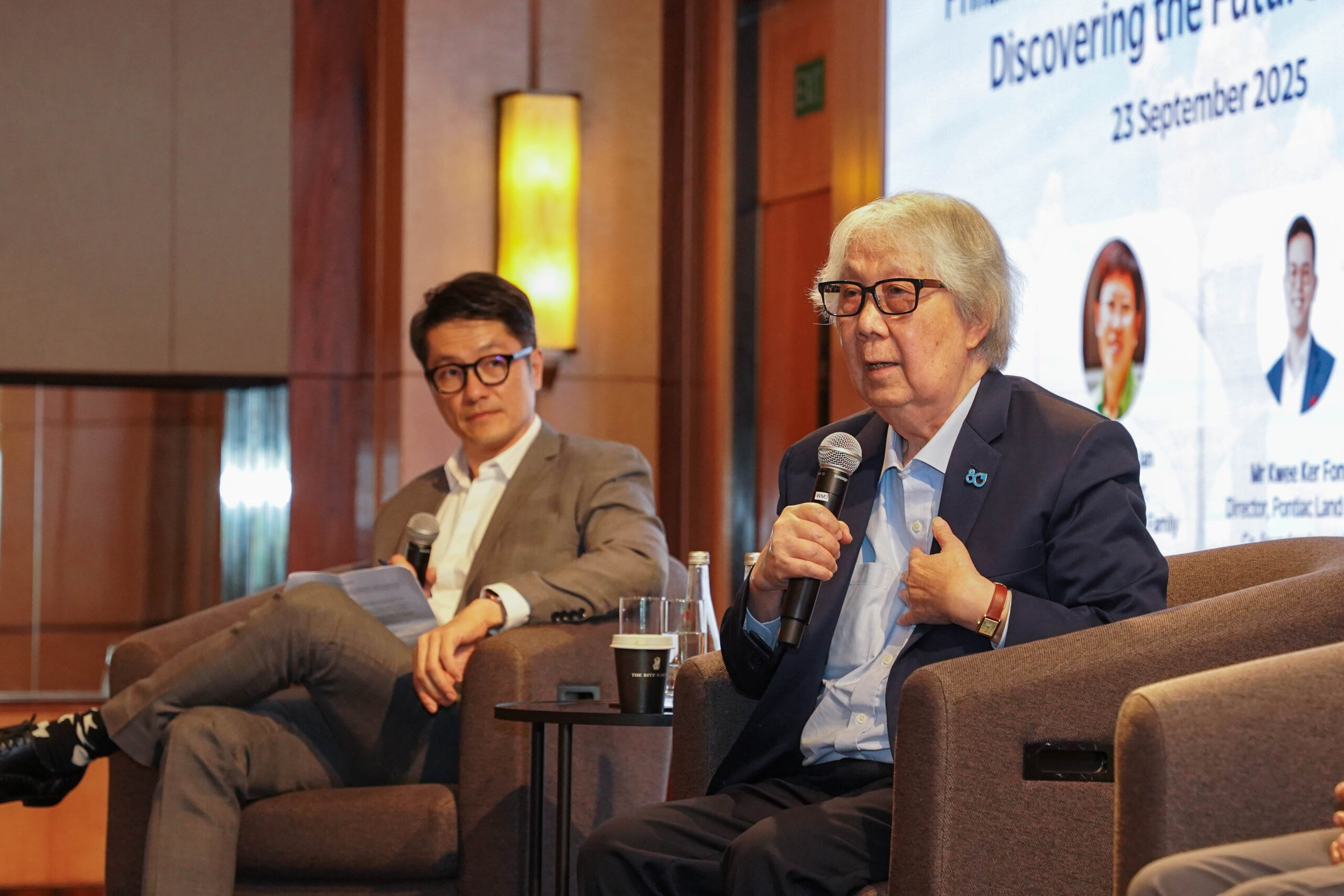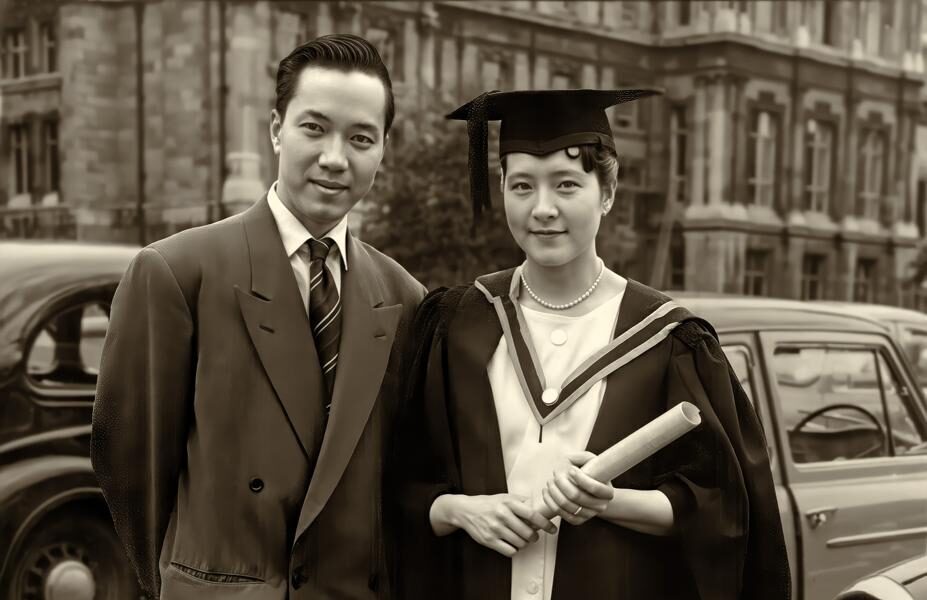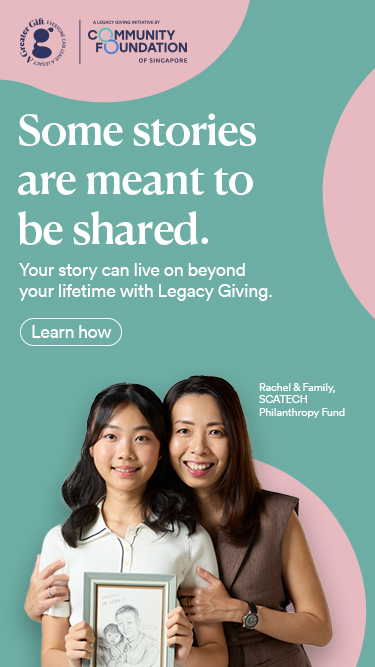Minding the gaps: 10 friends collaborate to take on social issues in Singapore


Widening social inequality, an ageing population, and the threat of climate change – these are the issues that frame our world today. Amidst increasing recognition of these complex issues, a group of ten donors have come together to establish Mind the Gap 200 (MtG 200), a multi-fund project, with the Community Foundation of Singapore (CFS). Thus far, S$10 million has been raised.
The brainchild of Mr Tow Heng Tan, CEO of Pavilion Capital, MtG 200 is the first ever collective of donor advised funds to address social issues across multiple sectors in Singapore. MtG 200 will provide support to four areas of focus: community, education, healthcare and sustainability.
Since July 2019, MtG 200 has disbursed over $2m to a variety of initiatives that fall under its four focus areas. Close to $1m has been used to fund palliative care training, facilities and other in-patient programmes across charities such as Assisi Hospice and St. Luke’s Hospital. More than half a million will go to resourcing educational programmes across life stages – from early childhood initiatives right up to bursaries at the tertiary level.
During the SG Care’s bicentennial celebrations in August 2019, $200,000 was disbursed to a total of 10 charities, such as Stroke Support Station Ltd, YMCA, Very Special Arts Singapore and Waterways Watch Society. Finally, a further $150,000 has gone to fund training and job coaching to help socially excluded groups secure permanent employment.
The idea of launching a group of donor funds under a common umbrella took root in 2017. Back then, the word ‘divide’ regularly appeared in the news as well as in conversations. Prime Minister Lee Hsien Loong also spoke about social issues at Singapore’s National Day Rally. The idea for the MtG 200 was thus born – with its aim to contribute towards a stronger and more cohesive society that will last another 200 years and beyond. Mr Tow rallied like-minded friends, and through his passionate advocacy, MtG 200 is now spearheaded by ten donor sponsors, many of whom are business professionals.
For Mr David Heng, CEO of ABC World Asia, MtG 200 was an opportunity to balance head and heart. He says, “Sustainability is an issue I think about every day, but more so from the investment angle. The MtG 200 project helps me to cover the non-investment aspect. I hope my friends will see the value in this project and lend their support.”
Others, like Mr Chew Sutat, are already active champions of social causes. As the executive vice president of the Singapore Exchange (SGX), Mr Chew is also chairman of the SGX Bull Charge, SGX’s flagship charity initiative and chairman of mental health charity Caregivers Alliance Limited. Mr Chew, whose focus is on supporting caregivers, says, “By expressing solidarity with those in need, philanthropic giving has helped to alleviate social tensions that inevitably surface over time.”
For Mr Teng Ngiek Lian, MtG 200 complements his personal endowment fund called The Silent Foundation, which focuses on disadvantaged groups. Under the MtG 200 group, he helms the Singapore Unity Fund, aimed at addressing social divides. “One way we can effectively tackle inequality is to help the underprivileged attain upward social mobility, while simultaneously upholding the tenets of meritocracy. MtG 200 is a small step towards supporting the less advantaged, and helping them change their circumstances,” he added.
Mr Tung Chi Fung, CEO of Sheng Ye Capital and donor sponsor of the Knowledge Fund, echoes this sentiment, “Give a man a fish and you feed him for a day; teach a man to fish and you feed him for a lifetime. We hope to help disadvantaged young people to bridge the knowledge gap.”
Tapping on CFS’s deep understanding of local issues, the MtG 200 group of funds are targeted at identified gaps. It will help to build capabilities in the sector and provide impactful solutions that can be sustained in the long-term. Take for instance, its Intergenerational Fund, which seeks to tackle social isolation of elders in Singapore through purposeful intergenerational interaction. Over $300,000 has been disbursed to support such programmes by charities Empower Ageing, All Saints Home and Viraya Community Services.
Professor Kua Ee Heok, Professor of Psychiatry and Neuroscience at the National University of Singapore, champions The Mental Health Fund and has helped to provide charities with limited fund-raising capacity with much needed support as they continue to advocate for mental well-being. The fund will also support mental health and resilience research and services for the young and old alike.
Ultimately, the vision of MtG 200 is to be a timely reminder for all of us to ‘mind the gap’ in our lives and to work with others in making a difference. Mr Tow expresses, “MtG 200 is a collaborative effort. Without the support of like-minded friends, this would not have gotten off the ground. With the support of CFS, together we can create an impact that will be exponentially bigger than what we can ever achieve as individuals.”
Widening social inequality, an ageing population, and the threat of climate change – these are the issues that frame our world today. Amidst increasing recognition of these complex issues, a group of ten donors have come together to establish Mind the Gap 200 (MtG 200), a multi-fund project, with the Community Foundation of Singapore (CFS). Thus far, S$10 million has been raised.
The brainchild of Mr Tow Heng Tan, CEO of Pavilion Capital, MtG 200 is the first ever collective of donor advised funds to address social issues across multiple sectors in Singapore. MtG 200 will provide support to four areas of focus: community, education, healthcare and sustainability.
Since July 2019, MtG 200 has disbursed over $2m to a variety of initiatives that fall under its four focus areas. Close to $1m has been used to fund palliative care training, facilities and other in-patient programmes across charities such as Assisi Hospice and St. Luke’s Hospital. More than half a million will go to resourcing educational programmes across life stages – from early childhood initiatives right up to bursaries at the tertiary level.
During the SG Care’s bicentennial celebrations in August 2019, $200,000 was disbursed to a total of 10 charities, such as Stroke Support Station Ltd, YMCA, Very Special Arts Singapore and Waterways Watch Society. Finally, a further $150,000 has gone to fund training and job coaching to help socially excluded groups secure permanent employment.
The idea of launching a group of donor funds under a common umbrella took root in 2017. Back then, the word ‘divide’ regularly appeared in the news as well as in conversations. Prime Minister Lee Hsien Loong also spoke about social issues at Singapore’s National Day Rally. The idea for the MtG 200 was thus born – with its aim to contribute towards a stronger and more cohesive society that will last another 200 years and beyond. Mr Tow rallied like-minded friends, and through his passionate advocacy, MtG 200 is now spearheaded by ten donor sponsors, many of whom are business professionals.
For Mr David Heng, CEO of ABC World Asia, MtG 200 was an opportunity to balance head and heart. He says, “Sustainability is an issue I think about every day, but more so from the investment angle. The MtG 200 project helps me to cover the non-investment aspect. I hope my friends will see the value in this project and lend their support.”
Others, like Mr Chew Sutat, are already active champions of social causes. As the executive vice president of the Singapore Exchange (SGX), Mr Chew is also chairman of the SGX Bull Charge, SGX’s flagship charity initiative and chairman of mental health charity Caregivers Alliance Limited. Mr Chew, whose focus is on supporting caregivers, says, “By expressing solidarity with those in need, philanthropic giving has helped to alleviate social tensions that inevitably surface over time.”
For Mr Teng Ngiek Lian, MtG 200 complements his personal endowment fund called The Silent Foundation, which focuses on disadvantaged groups. Under the MtG 200 group, he helms the Singapore Unity Fund, aimed at addressing social divides. “One way we can effectively tackle inequality is to help the underprivileged attain upward social mobility, while simultaneously upholding the tenets of meritocracy. MtG 200 is a small step towards supporting the less advantaged, and helping them change their circumstances,” he added.
Mr Tung Chi Fung, CEO of Sheng Ye Capital and donor sponsor of the Knowledge Fund, echoes this sentiment, “Give a man a fish and you feed him for a day; teach a man to fish and you feed him for a lifetime. We hope to help disadvantaged young people to bridge the knowledge gap.”
Tapping on CFS’s deep understanding of local issues, the MtG 200 group of funds are targeted at identified gaps. It will help to build capabilities in the sector and provide impactful solutions that can be sustained in the long-term. Take for instance, its Intergenerational Fund, which seeks to tackle social isolation of elders in Singapore through purposeful intergenerational interaction. Over $300,000 has been disbursed to support such programmes by charities Empower Ageing, All Saints Home and Viraya Community Services.
Professor Kua Ee Heok, Professor of Psychiatry and Neuroscience at the National University of Singapore, champions The Mental Health Fund and has helped to provide charities with limited fund-raising capacity with much needed support as they continue to advocate for mental well-being. The fund will also support mental health and resilience research and services for the young and old alike.
Ultimately, the vision of MtG 200 is to be a timely reminder for all of us to ‘mind the gap’ in our lives and to work with others in making a difference. Mr Tow expresses, “MtG 200 is a collaborative effort. Without the support of like-minded friends, this would not have gotten off the ground. With the support of CFS, together we can create an impact that will be exponentially bigger than what we can ever achieve as individuals.”
- Related Topics For You: ACCESSING QUALITY EDUCATION, CHARITY STORIES, DONOR STORIES, DONOR-ADVISED FUND, EDUCATION, NEWS, STORIES OF IMPACT, YOUTH



